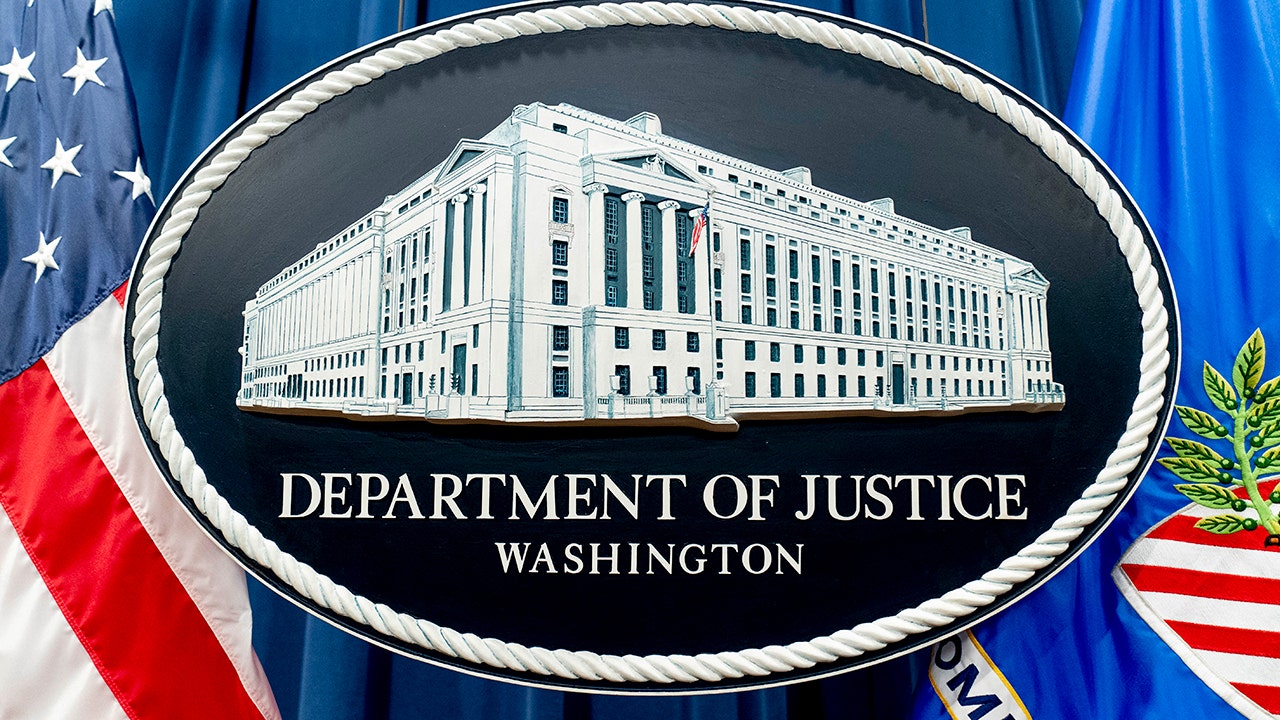World
Bernie Sanders forces US senators into a test vote on military aid as the Israel-Hamas war grinds on

WASHINGTON (AP) — In a notable test Tuesday, Sen. Bernie Sanders is forcing colleagues to vote on record whether to investigate human rights abuses in the Israel-Hamas war, a step toward potentially limiting U.S. military aid to Israel as its devastating attacks on Gaza grind past 100 days.
The Senate vote, a first of its kind tapping into a decades-old law, would require the U.S. State Department to, within 30 days, produce a report on whether the Israeli war effort in Gaza is violating human rights and international accords. If so, U.S. military aid to Israel, long assured without question, could be quickly halted.
While the Senate is unlikely to approve the measure, the vote by senators will begin to reveal the depth of unease among U.S. lawmakers over Israel’s prosecution of the war against Hamas. With no apparent end to the bombardment, Israel’s attacks against Palestinians, an attempt to root out Hamas leaders, are viewed by some as disproportional to the initial terrorist attack on Israel.
The Biden administration, with repeated overtures to Israel Prime Minister Benjamin Netanyahu’s government, including shuttle diplomacy last week by U.S. Secretary of State Antony Blinken, is pushing Israel to shift the intensity of the battle. Some 24,000 people in Gaza, the majority of them women and children, have been killed and the bombings have destroyed most of the housing units, displacing most of its 2.3 million people in a humanitarian catastrophe.
“To my mind, Israel has the absolute right to defend itself from Hamas’ barbaric terrorist attack on October 7, no question about that,” Sanders told AP during an interview Monday ahead of the vote.
“But what Israel does not have a right to do — using military assistance from the United States — does not have the right to go to war against the entire Palestinian people,” said Sanders, the independent from Vermont. “And in my view, that’s what has been happening.”
Heading toward the vote, Sanders said senators are nervous because what he’s trying to do is unprecedented in procedure and essentially practice.
“The Congress has always been supportive of Israel in general, and this begins to question the nature of the military campaign,” Sanders said. “And I think that makes some other people quite nervous.”
The White House has rejected approach from Sanders as “unworkable” as it seeks a transition from Israel and works to ensure support at home and abroad against a stirring backlash to the scenes of destruction from Gaza.
“We do not believe that this resolution is the right vehicle to address these issues. And we don’t think now is the right time. It’s unworkable, quite frankly,” said a statement from the White House National Security Council’s John Kirby.
“The Israelis have indicated they are preparing to transition their operations to a much lower intensity. And we believe that transition will be helpful both in terms of reducing civilian casualties, as well as increasing humanitarian assistance,” Kirby said.
The action comes as Biden’s request for $106 billion supplemental national security aid for Israel as well as Ukraine and other military needs is at a standstill. Republicans in Congress are insisting on attaching vast policy changes to stop the flow of immigration at the U.S.-Mexico border.
Of that supplemental aid package, more than $14 billion would go to Israel, including $10 billion in U.S. military assistance, as it retaliates against Hamas for the Oct. 7 surprise attack, among the most deadly assaults ever. Some 1,200 people were killed and 250 taken hostage, many still being held.
Several key Democratic senators have announced their unease with Israel’s war in Gaza, insisting the Biden administration must do more to push the Netanyahu government to reduce civilian casualties and improve living conditions for Palestinians in Gaza.
Going further, Sanders had already announced his refusal to support more military aid to Israel in the package because of the war.
“If I had my druthers, that’s what I would do. That is not what this resolution is about,” Sanders said.
But he did say that the resolution should be seen as “a first step, not a last step.”
The resolution is drawn from the Foreign Assistance Act of 1961, which was amended after the Nixon era, enabling Congress to provide oversight of U.S. military assistance abroad. It requires that any arms or military aid must be used in accordance with international human rights accords.
While senators have voted to try to halt foreign arms sales to other countries in the past, this is an untested mechanism.
The question before the Senate will be whether to ask the State Department for a report on whether human rights violations using U.S. equipment may have occurred during Israel’s current campaign against Gaza, according to Sanders’ office.
If the resolution were to be approved, it would force the State Department to produce a report of its findings within 30 days or risk the aid being cut off.
While it’s not at all certain that U.S. aid to Israel would actually be halted, since Congress could take steps to ensure no interruption, it is enough of a threat that many senators, even the Democrats who have raised concerns about the bombardment of Gaza and the humanitarian crisis, will be unwilling to support the measure.
Republican senators are likely to fully reject Sanders’ proposal. Senate Republicans have been almost unanimous in their support for Israel, even as they are blocking Biden’s broader national security package because of divisions within the GOP over helping Ukraine as it battles Russia’s invasion.
Talks on attaching the U.S-Mexico border security provisions to the national security aid package are lumbering along, but no quick breakthrough is expected as Republicans push for tougher restrictions on migrants than Democrats are willing to give, particularly for immigrations seeking asylum in the U.S.
Associated Press writer Ellen Knickmeyer contributed to this report.

World
The CW’s Top Exec on Walker’s Uncertain Fate, Potential All American ‘Reboot’ and Superman & Lois’ ‘F–king Awesome’ Sendoff

ad
World
Justice Dept. makes arrests in North Korean identity theft scheme involving thousands of IT workers

The Justice Department announced Thursday multiple arrests in a series of complex stolen identity theft cases that officials say are part of a wide-ranging scheme that generates enormous proceeds for the North Korean government, including for its weapons program.
The conspiracy involves thousands of North Korean information technology workers who prosecutors say are dispatched by the government to live abroad and who rely on the stolen identities of Americans to obtain remote employment at U.S.-based Fortune 500 companies, jobs that give them access to sensitive corporate data and lucrative paychecks. The companies did not realize the workers were overseas.
NORTH KOREA’S MENACING NUCLEAR THREAT IS TOO DANGEROUS TO IGNORE. US MUST LEAD BEFORE TIME RUNS OUT
The fraud scheme is a way for heavily sanctioned North Korea, which is cut off from the U.S. financial system, to take advantage of a “toxic brew” of converging factors, including a high-tech labor shortage in the U.S. and the proliferation of remote telework, Marshall Miller, the Justice Department’s principal associate deputy attorney general, said in an interview.
The seal for the Justice Department is photographed in Washington, Nov. 18, 2022. The Justice Department has announced three arrests in a complex stolen identity scheme that officials say generates enormous proceeds for the North Korean government, including for its weapons program. (AP Photo/Andrew Harnik)
The Justice Department says the cases are part of a broader strategy to not only prosecute individuals who enable the fraud but also to build partnerships with other countries and to warn private-sector companies of the need to be vigilant — and not duped — about the actual identities of the people they’re hiring.
FBI and Justice Department officials launched an initiative in March centered on the fraud scheme and last year announced the seizure of more than a dozen website domains used by North Korean IT workers.
“More and more often, compliance programs at American companies and organizations are on the front lines of protecting our national security,” Miller said. “Corporate compliance and national security are now intertwined like never before.”
The Justice Department said in court documents in one case that more than 300 companies — including a high-end retail chain and a “premier Silicon Valley technology company” — have been affected and that more than $6.8 million in revenue has been generated for the workers, who are based outside of the U.S., including in China and Russia.
Those arrested include an Arizona woman, Christina Marie Chapman, who prosecutors say facilitated the scheme by helping the workers obtain and validate stolen identities, receiving and hosting laptops from U.S. companies who thought they were sending the devices to legitimate employees and helping the workers connect remotely to companies.
According to the indictment, Chapman ran more than one “laptop farm” where U.S. companies sent computers and paychecks to IT workers they did not realize were overseas.
At Chapman’s laptop farms, she allegedly connected overseas IT workers who logged in remotely to company networks so it appeared the logins were coming from the United States. She also is alleged to have received paychecks for the overseas IT workers at her home, forging the beneficiaries’ signatures for transfer abroad and enriching herself by charging monthly fees.
Other defendants include a Ukrainian man, Oleksandr Didenko, who prosecutors say created fake accounts at job search platforms that he then sold to overseas workers who went on to apply for jobs at U.S. companies. He was was arrested in Poland last week, and the Justice Department said it had seized his company’s online domain.
A Vietnamese national, Minh Phuong Vong, was arrested in Maryland on charges of fraudulently obtaining a job at a U.S. company that was actually performed by remote workers who posed as him and were based overseas.
It was not immediately clear if any of the three had lawyers.
Separately, the State Department said it was offering a reward for information about certain North Korean IT workers who officials say were assisted by Chapman.
And the FBI, which conducted the investigations, issued a public service announcement that warned companies about the scheme, encouraging them to implement identity verification standards through the hiring process and to educate human resources staff and hiring managers about the threat.
World
Taiwan grapples with divisive history as new president prepares for power

Taipei, Taiwan – Even as Taiwan prepares for the inauguration of its eighth president next week, it continues to struggle over the legacy of the island’s first president, Chiang Kai-shek.
To some, Chiang was the “generalissimo” who liberated the Taiwanese from the Japanese colonisers. To many others, he was the oppressor-in-chief who declared martial law and ushered in the period of White Terror that would last until 1992.
For decades, these duelling narratives have divided Taiwan’s society and a recent push for transitional justice only seems to have deepened the fault lines. Now, the division is raising concern about whether it might affect Taiwan’s ability to mount a unified defence against China, which has become increasingly assertive in its claim over the self-ruled island.
“There is a concern when push comes to shove if the civilians work well with the military to defend Taiwan,” said historian Dominic Meng-Hsuan Yang of the University of Missouri in the United States.
On February 28, 1947, Chiang’s newly-arrived Kuomintang (KMT) troops suppressed an uprising by Taiwan natives, killing as many as 28,000 people in what became known as the February 28 Incident. In the four-decade-long martial law era that followed, thousands more perished.
This traumatic history met its official reckoning in 2018, when the Taiwan government set up its Transitional Justice Commission modelled after truth and reconciliation initiatives in Africa, Latin America and North America to redress historical human rights abuses and other atrocities.
When the commission concluded in May 2022, however, advocates and observers said they had seen little truth and hardly any reconciliation.
Almost from the first days of the commission, the meting-out of transitional justice became politicised across the blue-versus-green demarcation that has long defined Taiwan’s sociopolitical landscape, with blue representing KMT supporters and green the ruling Democratic Progressive Party (DPP).
A recently published anthology entitled Ethics of Historical Memory: From Transitional Justice to Overcoming the Past explains how the way Taiwanese remember the past shapes how they think about transitional justice. And as that recollection is determined by which camp they support, each champions their own version of Taiwan’s history.
“That’s why transitional justice seems so stagnant now,” explained Jimmy Chia-Shin Hsu, research professor at the legal research institute Academia Sinica who contributed to and edited the book. “Whatever truth it uncovers would be mired in the blue-green narrative.”
A non-partisan view, Hsu said, is to credit the DPP with codifying transitional justice and Lee Teng-hui, the first democratically elected KMT president, with breaking the taboo on broaching the February 28 Incident.
The past shaping the future
In February, Betty Wei attended the commemoration for the February 28 incident for the first time and listened intently to the oral history collected from the survivors. Wei, 30, said she wanted to learn more about what happened because her secondary school textbook had brushed over what many consider a watershed event in a few cryptic lines, and many of her contemporaries showed little interest.
“In recent years the voices pushing for transitional justice have grown muted,” Wei told Al Jazeera. “A lot of people in my generation think the scores are for previous generations to settle.”

In Taiwan, the past is never past, and rather it is fodder for new fights.
As the DPP gears up for an unprecedented third consecutive term, the unfinished business of removing the island’s remaining statues of Chiang has resurfaced as the latest front in what Yang, the historian, described to Al Jazeera as “this memory war”.
More than half of the initial 1,500 monuments have been taken down over the past two years, with the remaining statues mostly on military installations.
Yang argues that is because the top brass rose through the ranks under martial law and many still regard Chiang as their leader, warts and all. For them, toppling the statues would be an attack on their history.
The statues embody “the historical legacy the military wants to keep alive,” Yang said. “That’s a source of tension between the military and the DPP government.”
On the eve of William Lai Ching-te taking his oath as the island’s next president, Taiwanese will for the first time mark the “White Terror Memorial Day” on May 19, the day when martial law was declared in 1949.
While it is clear Taiwanese have promised to never forget, whom and how to forgive has become far murkier.
As the former chairman of the Taiwan Association for Truth and Reconciliation, the first NGO advocating for the cause, Cheng-Yi Huang lauded the government’s move to take over the KMT’s private archives in recent years but lamented there had been too little truth-seeking so far.
For example, under the February 28 Incident Disposition and Compensation Act, Huang said many have chosen to stay silent about their complicity because only victims get compensation.
However, Taiwan’s tumultuous history means the line between victim and victimiser is rarely clear-cut.

By digging into military archives, Yang has shed light on how Chinese were kidnapped and pressed into service by the KMT in the last years of the Chinese Civil War. Those who tried to flee were tortured and even murdered. And the native Taiwanese who rose up to resist KMT’s suppression were persecuted as communists.
“Under martial law, the military was seen as an arm of the dictatorship, but they were also victims of the dictator’s regime,” Yang told Al Jazeera. “The transitional justice movement has missed the opportunity to reconcile Taiwanese society with the military.”
To Hsu, Beijing’s belligerence demands Taiwanese of all stripes find a common cause.
“As we’re facing the threat from the Chinese Communist Party, it’s imperative that we unite in forging a collective future,” said Hsu, to a standing-room-only book talk during the Taipei International Book Exhibition in late February.
“And how we remember our past will shape this future of ours.”
-

 Politics1 week ago
Politics1 week agoBiden takes role as bystander on border and campus protests, surrenders the bully pulpit
-

 Politics1 week ago
Politics1 week ago'You need to stop': Gov. Noem lashes out during heated interview over book anecdote about killing dog
-

 Politics1 week ago
Politics1 week agoRFK Jr said a worm ate part of his brain and died in his head
-

 News1 week ago
News1 week agoMan, 75, confesses to killing wife in hospital because he couldn’t afford her care, court documents say
-

 World1 week ago
World1 week agoPentagon chief confirms US pause on weapons shipment to Israel
-

 Politics1 week ago
Politics1 week agoHere's what GOP rebels want from Johnson amid threats to oust him from speakership
-

 World1 week ago
World1 week agoPro-Palestine protests: How some universities reached deals with students
-

 World1 week ago
World1 week agoConvicted MEP's expense claims must be published: EU court

















